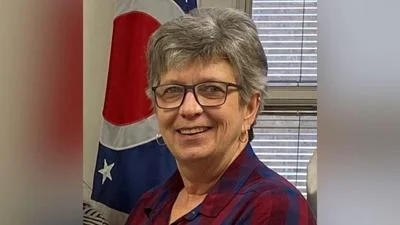An Alzheimer's disease or dementia diagnosis can devastate not only the patient but their entire family.
The loved ones of a recently diagnosed Alzheimer's or dementia patient face a wave of questions. Is my loved one's independence lost forever? Will they require around-the-clock care? What are the treatment and management options? Were there signs of dementia or Alzheimer's in my loved one that I missed earlier on?
Julia Pechlivanos, executive director of the Northwest Ohio Alzheimer's Association, told the Mount Vernon News that early clues of the disease include memory loss that goes beyond misplacing car keys on a busy morning. Where brief lapses in memory like losing keys or forgetting sunglasses on one's head are normal and expected, an early sign of dementia — which is merely a symptom of a brain disease including but not limited to Alzheimer's — would be permanently forgetting that you put your sunglasses on your head or your keys on the counter in the first place.
"It is memory loss that disrupts your daily life," Pechlivanos said. "Things that you forget as if they were never there."
The trail to Alzheimer's or any of the other approximately 100 brain diseases that cause dementia can also be traced back to declines in executive function, such as making a doctor's appointment and forgetting that it was made or putting a casserole in the oven and forgetting it's there, she explained. All of these signs can be noticed by spouses, family members or friends, or they may be noticed by the actual patient.
For all the brain diseases that cause dementia, Pechlivanos noted that the greatest risk factor for dementia development is age.
"As we age, there is a bigger chance that we will develop some form of dementia, most likely Alzheimer's disease," she said.
Trends also show that the disease is much more frequent in women and in people with Down syndrome (due to their extra X-chromosome).
For families with a loved one who has just received an Alzheimer's or dementia diagnosis, Pechlivanos wants them to know that isolation is a catalyst for the mental decline. She recommends that families look into communities where their loved one can socialize with others while getting assistance with daily tasks.
"The more social interaction you have, the more mental stimulation you have, the better off you are for a longer period of time," she said.
While there is no definite way to stop the progression of dementia in its tracks, Pechlivanos said that a balanced diet, plenty of exercise and a generally healthy lifestyle have been shown to slow down the progression of symptoms, especially with regard to plaque in the brain that can cause the beginning of dementia development as early as 30 years of age.
For help with the questions, frustrations and resources that come along with a dementia diagnosis, the director asks patients and families to reach out. Part of the association's assistance is in the form of support groups where caregivers of Alzheimer's patients can come together.
"The Alzheimer's Association is not only a leader in the world and in research, but we also provide local care and support services to families," Pechlivanos said. "These are designed for caregivers, and they're an opportunity for caregivers who are experiencing some of the same things to get together once a month for an hour, hour and a half, and have a conversation around some of the challenges that are being faced."







